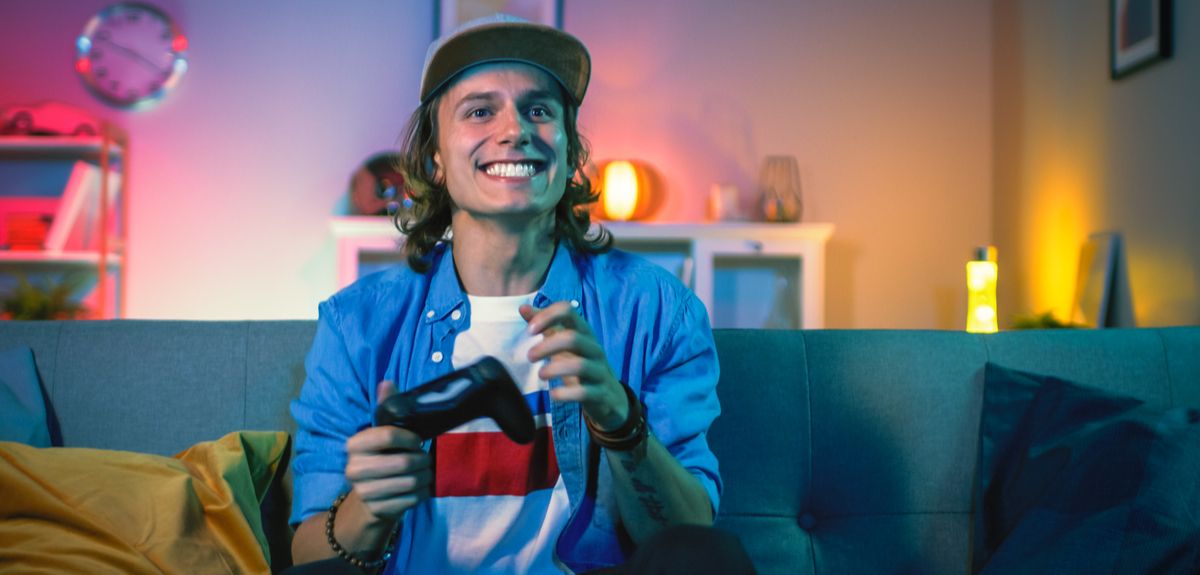
Gaming may not be as bad as you think – Oxford research
Conventional wisdom has it that too many cooks spoil the broth. But such judiciousness is not usually considered the basis for scientific pronouncements or international rulings on the need to limit the number of people in kitchens. But, when it comes to video games, conventional wisdom, not science, forms the basis for our thinking and even pronouncements from global authorities, according to Professor Andy Przybylski, Director of Research at the Oxford Internet Institute.
The World Health Organisation, no less, weighed into the debate over gaming, pronouncing that ‘Gaming disorder’ is an addictive behaviour and has classified gaming addiction as a disease. Yet, according to Professor Przybylski, there has been no scientific study which takes account of industry data and sentiment – until now. The professor has just completed a formal scientific study into the impact on players of video gaming – Video game play is positively correlated with well-being. And it has some surprising results, which suggest the old wives were wrong, yet again.
The study suggests that experiences of competence and social connection with others through play may contribute to people’s well-being. Indeed, those who derived enjoyment from playing were more likely to report experiencing positive well-being.
The study suggests that experiences of competence and social connection with others through play may contribute to people’s well-being. Indeed, those who derived enjoyment from playing were more likely to report experiencing positive well-being
According to the research, ‘We found a small positive relation between game time and well-being for players of both games. We did not find evidence that this relation was moderated by need satisfactions and motivations. Overall, our findings suggest that regulating video games, on the basis of time, might not bring the benefits many might expect, though the correlational nature of the data limits that conclusion.’
So, stopping gamers from gaming is not necessarily a good thing. But the research is not a universal thumbs up, or perhaps down would be more correct, for a gaming analogy. Professor Przybylski emphasises the team looked at just two games and 3,000 adult players. But the study suggests there is a need to find out if the ‘moral panic’ over gaming is just that.
‘It’s fine to have an opinion about video games,’ says Professor Przybylski. ‘But, without research, you cannot know if this is a real thing or just your own ‘facts’. You can have your own opinion but you cannot have your own facts.’
It’s fine to have an opinion about video games...But, without research, you cannot know if this is a real thing or just your own ‘facts’. You can have your own opinion but you cannot have your own facts
Professor Andy Przybylski
Although games have been with us for the best part of four decades, the Oxford expert says this is the first study of its type, because it draws on data only available to the gaming industry. According to the report, ‘Policymakers urgently require reliable, robust, and credible evidence that illuminates the influences video game may have on global mental health. However, the most important source of data, the objective behaviours of players, are not used in scientific research.’
Contrary to conventional wisdom, using this method, Professor Przybylski’s study shows that the players involved in his study believed they benefitted to some extent from enhanced mental well-being as a result of lengthy games sessions on two specific games, Plants vs. Zombies: Battle for Neighborville and Animal Crossing: New Horizons.
Both are online ‘social’ games, where players engage with others at remote locations, and neither are in the 18+ ‘violent’ category.
Working with ‘blind’ data of gaming time provided by the games manufacturers, Electronic Arts and Nintendo of America, Professor Przybylski’s team surveyed the game players and ‘explored the association between objective game time and well-being, delivering a much-needed exploration of the relation between directly measured play behaviour and subjective mental health’.
The study does not mean, he says, that all video games are ‘good for you’ or that ‘all players benefit’. But, he maintains, his research should be a first step in carrying out a proper scientific study of the impact of gaming on players and their effects over time; he is keen to see more studies follow.
What worries Professor Przybylski is that, earlier this year, in an extraordinary volte face, the WHO’s US ambassador, suggested that young men be given video games, to ensure they stay indoors and comply with the lockdown, thereby limiting the spread of COVID. Wouldn’t this be another leap of logic, to add to the last one? If gaming really is an addition, as the WHO claimed, wouldn’t that be like giving an alcoholic a bottle?
‘This was a serious suggestion....But it’s an unlabelled bottle,’ says Professor Przybylski. ‘We don’t know what’s in it.’